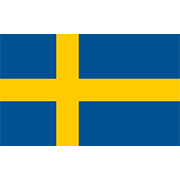Fiscal subject related
- Reduced tax on petrol and diesel (excluding agriculture);
- Extended tax reduction and reduced tax on diesel for agriculture and forestry;
- Tax reduction for low- and medium-income earners;
- Tax cuts for pensioners;
- Removal of reductions in employers' social security contributions for employees aged 15 to 18;
- Abolished tax on plastic carrier bags;
- Adjusted tax on gambling and tobacco;
- Increased turnover threshold for VAT to SEK 120,000; and
- Extension of tax relief provided for foreign experts, researchers, etc. moving to work in Sweden from five years to seven years.
Other news from Sweden
TLv6 Implementation Marks Significant Shift in EU’s Trust List Format
A new EU Trust List format, TLv6, will officially replace TLv5 in May 2025 as part of the updated eIDAS Regulation (EU 2024/1183). It introduces key technical changes like a new URI field, updated signature format, and optional phone number support. Organizations must update their systems to avoid signature validation failures and service disruptions, as TLv5 will no longer be valid once TLv6 take... Read more



Fiscalization in Sweden: What information should be provided in a manufacturer’s declaration when updating a cash register version?
 Sweden
Author: Nikolina Basić
Sweden
Author: Nikolina Basić
In Sweden, fiscalization rules require a manufacturer’s declaration for every version of a cash register model or program. When a cash register version is updated, the manufacturer must submit a new declaration outlining the changes and providing necessary explanations, as mandated by the Swedish Tax Agency under SKVFS 2014:9. To ensure compliance, manufacturers can use form SKV 1509 as a temporar... Read more



VIDA regulation adopted—what does that mean for business?
The EU adopted the VAT in the Digital Age (ViDA) package on March 11, 2025, introducing major changes to the VAT system starting January 1, 2027. Key reforms include mandatory digital VAT reporting by 2030, new VAT collection rules for online platforms, and expanded One-Stop Shop (OSS) registration to simplify cross-border compliance. Additional measures, such as mandatory e-invoicing, phasing out... Read more



Slovenia: EU Targets Unsafe E-Commerce Imports with New Measures
The European Commission is tightening regulations on e-commerce imports to address the surge of unsafe and counterfeit goods, particularly from China, by reforming customs rules and increasing product safety checks. Key measures include removing the duty exemption for low-value parcels, introducing a potential customs fee, establishing priority control areas, and launching an EU-wide product safet... Read more



An overview of general requirements for cash registers in Sweden
 Sweden
Author: Nikolina Basić
Sweden
Author: Nikolina Basić
In Sweden, businesses handling cash or card transactions must use certified cash registers or POS systems that meet strict fiscalization requirements set by the Swedish Tax Agency. These systems must securely store sales data, generate reports, enable electronic journaling, and connect to a verification system to prevent fraud and ensure compliance. In general terms, all businesses that handle cas... Read more



E-invoicing in Sweden—overview
 Sweden
Author: Nikolina Basić
Sweden
Author: Nikolina Basić
Sweden has mandated e-invoicing for all Business-to-Government (B2G) transactions since April 1, 2019, requiring suppliers to public entities to submit invoices electronically in the Peppol BIS Billing 3.0 format. While Business-to-Business (B2B) and Business-to-Consumer (B2C) e-invoicing are not yet mandatory, they are gaining traction due to their efficiency and cost-saving benefits. Read more



Reminder: Changes for Simplified Invoice Rules in Sweden
 Sweden
Author: Nikolina Basić
Sweden
Author: Nikolina Basić
Sweden has updated its simplified invoice rules by repealing regulation SKVFS 2005:14 and introducing new VAT provisions under SKVFS 2024:26, effective December 2024. These changes align with EU VAT directives and simplify invoicing for specific scenarios such as vending machine sales, public transport, toll payments, and combined electricity services. Read more


